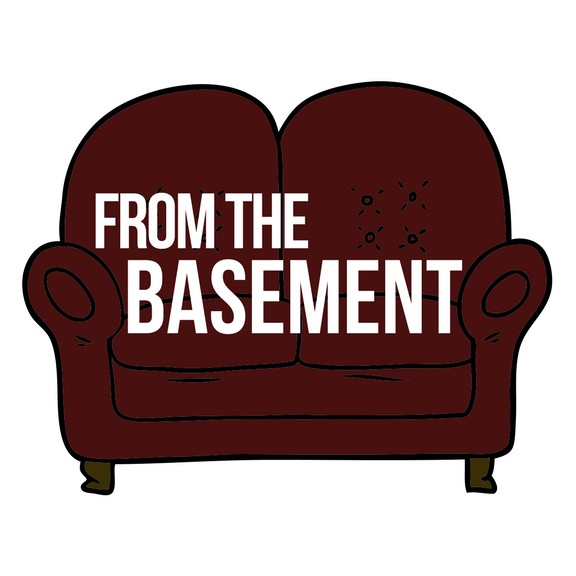From the Basement: Gender discrimination allegations plague face of New Orleans Saints

Last month, headlines broke over the Saints’ firing of cheerleader Bailey Davis and her subsequent complaint filed with the Equal Employment Opportunity Commission. Davis was fired after posting a picture to her private Instagram in a bodysuit, an action that her superiors claimed violated the policy preventing the cheerleaders from “appearing nude, semi-nude, or in lingerie.” It was implied her firing was also due in part to rumors that she had attended at a party where Saints players were present. Davis denies both of these accusations, arguing that the picture she posted was no more revealing than pictures that have been posted of her on the Saints’ Instagram. She also claims that her firing is evidence of gender discrimination in the workplace.
In light of Davis’ firing and complaint, a conversation has arisen about the policies surrounding cheerleaders in the NFL. In what is purported to be an effort to protect cheerleaders from players, the Saints’ social media policies force cheerleaders to find and block every single NFL player from any form of social media, keep themselves on private, avoid contacting the players in any way and refrain from posting any pictures with Saints gear. Cheerleaders are also not tagged in any pictures that the Saints post of them.
Fraternization policies are even stricter. If any NFL player enters a restaurant in which a cheerleader is dining, she must leave immediately. The same goes for parties and any other form of social contact. The players, however, are not penalized for breaching such a contract. Other NFL teams have been reported to have similar rules.
The question must be asked: if these policies are designed to “protect” the women from the men in the organization, why does the burden of following these policies lie solely on the women? This seems ineffective, if not outright victim-blaming and misogynistic. These policies are not the only way in which the NFL has been accused of violating the rights of cheerleaders. In past years, cheerleaders from the Oakland Raiders won a lawsuit against the team for denying them minimum wage and overtime, and members from the Bengals, Buccaneers and Jets have received generous settlements over lawsuits alleging poor pay and requirements for cheerleaders to pay for their own hair, makeup and transportation. Ex-Dolphins cheerleader Kristan Ware recently filed a lawsuit against the team alleging gender and religious discrimination.
There is no question about whether a private institution such as the NFL has the right to set its own rules for its employees and to fire those who break their contracts. Davis’ argument, however, rests on the idea that the rules are discriminatory based on gender, as the players do not have to follow the same policies the cheerleaders do. The policies do not articulate gender as a basis for the rules, but it is clear which gender groups are targeted and affected by specific policies. The job descriptions for players and cheerleaders are different, and this may be enough for a judge to dismiss the policy as based on position rather than gender. There is no clear path to victory for either side, especially if the matter goes to court.
The legality of the policies is less important than the public response. Like any corporation, the NFL and its individual organizations’ priority is profit and, by that logic, it prioritizes its audience. If its audience is sufficiently unhappy with the way that cheerleaders are being treated, or those who are the most unhappy are loud enough, the NFL will respond, especially if it thinks that will affect its revenue negatively. Even if Davis’ complaint is dismissed and there are no legal repercussions for the NFL, the public has no such obligations to look away.
The court of public opinion has significant sway, and it has been used countless times to influence corporate action, from companies like Google to the NBA. And the influence of policy changes could influence other organizations, such as the NHL, which has similar policies for its “ice girls.” Though Davis’ plight may seem solitary, how it plays out and public reaction could change the lives of the hundreds of cheerleaders in the NFL and the NFL itself, as well as the policies of sports leagues across the nation.
Leave a Comment
Your donation will support the student journalists of Tulane University. Your contribution will allow us to purchase equipment and cover our annual website hosting costs.



Coimer • Apr 19, 2018 at 3:11 pm
coim coimc oimc oimc oimc oimc coim coim coim coim coimc oimc oimc oimco imc ocim oci mcoi mco imocim
Dave Ruth • Apr 19, 2018 at 11:12 am
Goodells dozen year tenure of turning a Blind Eye to these girls getting Verbally Sexually Abused and at times groped shows you the true character of Rodge. Its all Wink Wink. All Goodell cares about is his new 200 MILLION dollar Ninny he gets to Suck on to keep his Mouth Shut on all the CTE Brain Damage Files. Oh the Integrity !!